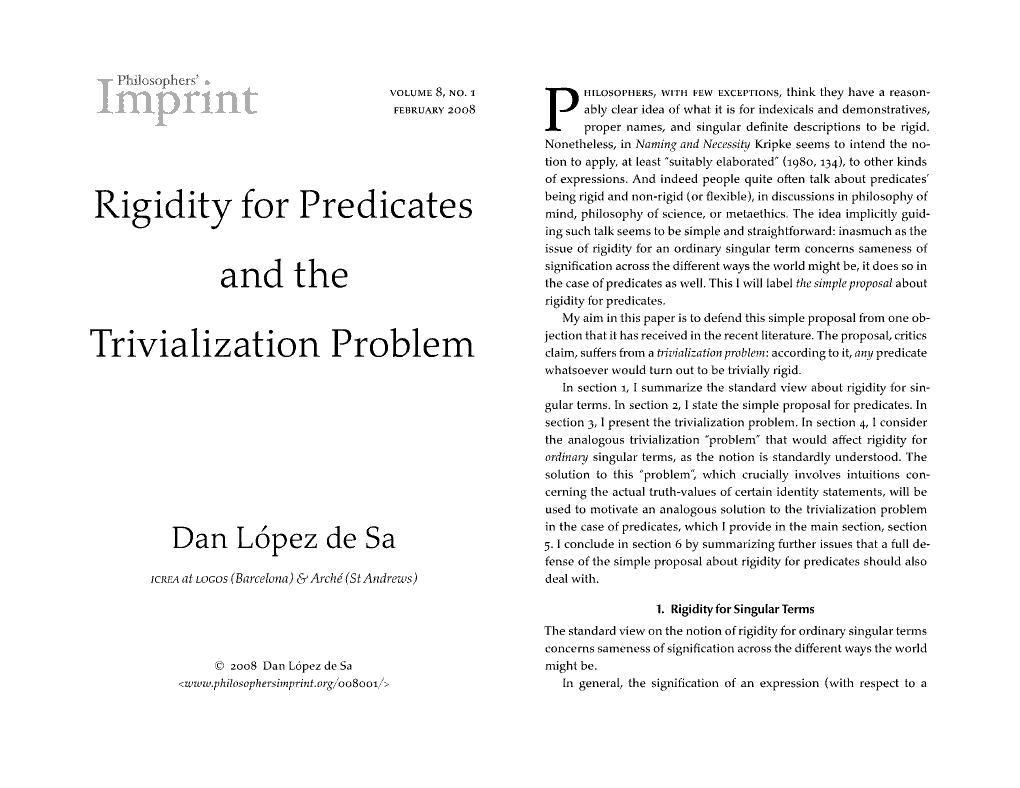Rigidity for Predicates and the Trivialization Problem
Skip other details (including permanent urls, DOI, citation information): This work is licensed under a Creative Commons Attribution-NonCommercial-NoDerivatives 3.0 License. Please contact [email protected] to use this work in a way not covered by the license.
For more information, read Michigan Publishing's access and usage policy.
Abstract
According to the simple proposal about rigidity for predicates, a predicate is rigid (roughly) if it signifies the same property across the relevant worlds. Recent critics claim that this suffers from a trivialization problem: any predicate whatsoever would turn out to be trivially rigid, according to the proposal. In this paper a corresponding "problem" for ordinary singular terms is considered. A natural solution is provided by intuitions concerning the actual truth-value of identity statements involving them. The simple proposal for predicates is then defended, by exploiting corresponding intuitions concerning statements involving their nominalizations, in an analogous manner.



